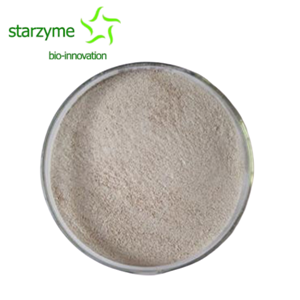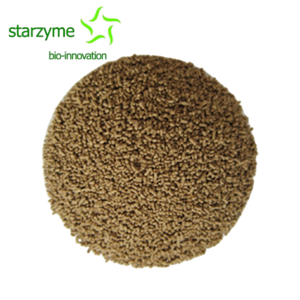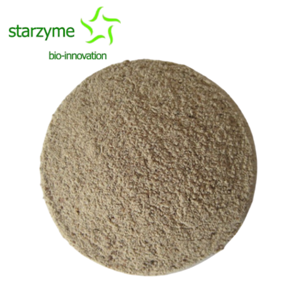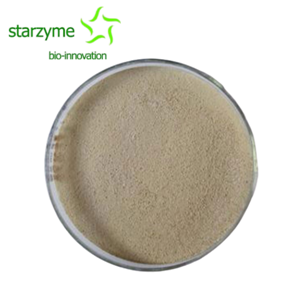Bacillus licheniformis in Agriculture Industry
The role of Bacillus licheniformis in agriculture

Application in Agricultural Planting
Bacillus licheniformis plays an important role in agricultural planting, especially in disease prevention and control. This probiotic can effectively inhibit various plant fungal diseases, such as gray mold, wilt, root rot, and leaf spot, providing protection for the healthy growth of crops.
Without Bacillus licheniformis

With Bacillus licheniformis
Application in Biological Bacterial Fertilizer
The application of Bacillus licheniformis in the field of bio fertilizers is also quite extensive. It can effectively inhibit the reproduction of pathogenic bacteria in the soil, prevent their invasion of plant roots, thereby reducing the risk of plant soil borne diseases and preventing the outbreak of various pests. In addition, this probiotic can also inhibit the absorption of nitrate nitrogen, heavy metals, and pesticides by crops, thereby purifying and repairing polluted soil. At the same time, it can also improve the particle structure of the soil and further improve the quality of the soil.
The extensive interaction between microbial probiotics and lichen spore forming bacteria
Inhibition of harmful microorganisms

Bacillus licheniformis secretes various antibacterial compounds during its growth process, which have significant inhibitory effects on Staphylococcus aureus and Candida albicans. Once the strain enters the animal's body, it can quickly colonize and reproduce in large quantities, creating an environment suitable for the growth of physiological anaerobic bacteria such as Bifidobacterium, Lactobacillus, and Streptococcus by consuming oxygen. This not only promotes the proliferation of beneficial microorganisms, but also effectively inhibits the growth of harmful bacteria, thereby helping to restore the balance of intestinal microbiota and the normal operation of gastrointestinal function.
Enhance immune defense ability
Bacillus licheniformis can not only activate the body's specific and non-specific immune responses, but also promote the phagocytosis of pathogens by macrophages, thereby significantly enhancing the anti infection ability.
Regulating animal nutrition metabolism and promoting growth
Bacillus licheniformis can produce various key enzymes in animal bodies, such as protease, amylase, lipase, etc. These enzymes not only help animals digest and absorb, but also enhance the activity of other digestive enzymes. In addition, it can promote the growth of farmed animals and improve feed utilization efficiency.
Optimize animal physiological status and intestinal health
This strain can further promote the maturation of animal intestinal structure and function, protect intestinal mucosa, stimulate villus growth, and improve overall intestinal structure. Adding Bacillus licheniformis to the diet of reserve cattle can significantly alter the rumen environment, increase the diversity of dominant rumen microbiota, and promote the colonization and growth of fiber degrading bacteria.
[Environmental Protection Function]
Bacillus licheniformis reduces the urease activity produced by Gram negative bacteria by inhibiting their reproduction. This can effectively reduce the digestion and absorption of nitrogen-containing substances in feces by urease, thereby reducing the nitrogen content in feces and achieving the effect of deodorization.
Wide application prospects
Application in animal husbandry
Bacillus licheniformis plays an important role in cattle and sheep farming. By adding Bacillus licheniformis preparations to feed, milk production can be significantly increased, milk fat percentage and milk protein content can be increased. In addition, the preparation can enhance the resistance of cows to heat stress and play a role in disease prevention and resistance. The active ingredients and metabolites of its live bacteria can effectively balance and enhance the beneficial microbial community in the rumen, inhibit the growth of harmful bacteria, thereby improving feed utilization, enhancing the body's immunity, enabling cattle and sheep to better resist adverse stress, and promoting the healthy growth of reserve cattle and sheep.

The utility in environmental pollution control
Bacillus licheniformis also performs well in environmental pollution control. It can effectively purify the air inside livestock and poultry houses and improve the breeding environment. In addition, the bacterium can degrade organic debris in water bodies, reduce the content of harmful substances such as ammonia nitrogen, nitrite, and hydrogen sulfide, thereby optimizing the aquaculture environment and promoting the ecological cycle of the water environment. Meanwhile, Bacillus licheniformis also has the ability to degrade pyrethroid pesticide residues and adsorb heavy metals, making positive contributions to environmental protection and ecological restoration.




